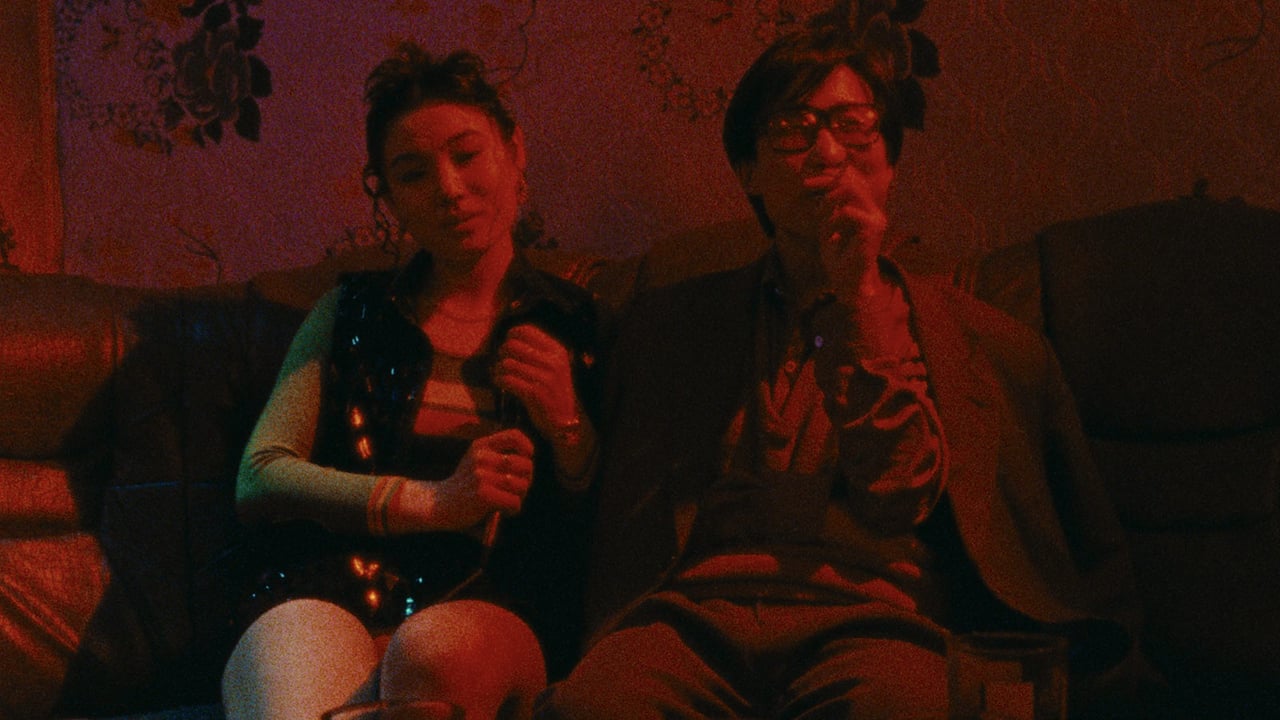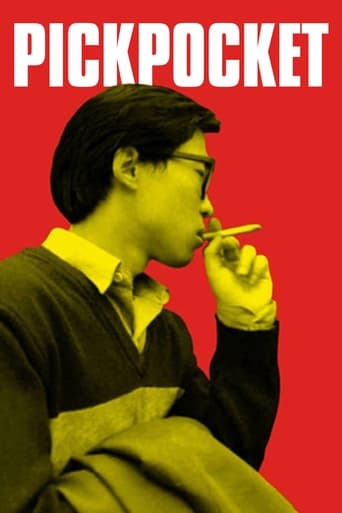Solemplex
To me, this movie is perfection.
Lollivan
It's the kind of movie you'll want to see a second time with someone who hasn't seen it yet, to remember what it was like to watch it for the first time.
Ginger
Very good movie overall, highly recommended. Most of the negative reviews don't have any merit and are all pollitically based. Give this movie a chance at least, and it might give you a different perspective.
Jenni Devyn
Worth seeing just to witness how winsome it is.
Robert_Woodward
Xiao Wu is a pickpocket in Beijing. Stuck on the bottom rung of the criminal ladder despite his advance into adult years, he heads a small group of thieving street urchins who haunt the back streets of the city. Xiao Wu is a surly character, prone to throwing away his cigarette ends when in other people's homes. His time is whiled away with games of Mahjong and American pool played out in the street and he has few close friends.Xiao Wu's brother, Xiao Yong, once himself a petty thief, is now a cigarette trader and brothel-owner. Xiao Yong, shamed by his criminal roots and his brother's failure to move on from the same position, excludes Xiao Wu from his wedding invitations and refuses to accept his wedding gift of ill-gotten money. Later on, Xiao Wu also discovers the shame that his hardworking parents feel for their pickpocket son.A sense develops that the world is moving on and that Xiao Wu is being left behind; this is increased by the ongoing police-led evictions from the street where he spends much of his time – a new building project is on its way. Xiao Wu finds a glimmer of hope in his encounters with Mei Mei, an employee at the local brothel. The taciturn pickpocket opens up a little in her presence and the two of them bond, somewhat oddly from a Western perspective, through karaoke singing. Xiao Wu suddenly finds his singing voice when alone in a bathhouse; his plain voice resounds poignantly in the large, grimy, empty room. It is a rare moment of beauty.When Xiao Wu buys a pager (state of the art in 1997) to keep in touch with Mei Mei it seems that he is starting to open up just a little to the changing world. But Mei Mei's sudden disappearance, along with his alienation from his family, leaves Xiao Wu without direction. A grim lack of purpose takes hold again. In the final frames of the film he is publicly humiliated, bringing the story to a sad end.The footage in this film is much grainier than many people made be used to, but this is not necessarily a weakness: the image quality suits the grey, dilapidated city streets. The hand-held camera adds intimacy to the karaoke scenes and captures the distance between the two brothers as they walk separately through the same streets. The muffled state of the soundtrack takes some getting used to, but writer-director Zhang Ke Jia was clearly working on a limited budget for his first feature. The non-professional cast, however, is surprisingly effective; Hong Wei Wang is a real find, exuding a seedy charm in the lead role.The Artificial Eye DVD which I watched this film on did not provide subtitles for many of the voices on radio and television, nor for some of the secondary characters, but there is an enormous amount of visual detail to take in as well. China simply does not feature enough on cinema screens, but this fine film suggests hope for the future.
Howard Schumann
"This is a film about our worries and our uneasiness. Having to cope with a dysfunctional society, we take refuge in solitude which is a substitute for dignity… It is finally a film about my native town and about contemporary China." - Jia ZhangkeA sense of longing permeates Xiao Wu, a 1997 film by the acclaimed independent Chinese director Jia Zhangke (Platform, Unknown Pleasures). Set in Jia's home city of Fengyang in Shanxi province, the film is basically a series of incidents in the life of petty thief and pickpocket, Xiao Wu. It is a compelling portrait of an individual in free-fall and, like other films by the director, shows the corrupting influence of Western values on an entire generation of Chinese. The film is reminiscent of the works of Robert Bresson in its use of non-professional actors, environmental sound, and in its spare cinematography by Yu Lik-Wai. Xiao Wu (Hong Wei Wang) wanders about aimlessly with lots of money to spend and little to spend it on except call girls at the local karaoke bar. He befriends Mei Mei (Hao Hongjian), and they start to develop a tentative relationship but his social awkwardness leads to ultimate rejection. Wu's friends have given up the life of crime and do not want to have anymore to do with him. His best friend, Jin Xiao Yong has just been voted a "Model Entrepreneur" for his activities in cigarette trafficking and does not invite Wu to his wedding. He even returns Wu's gift of money because it is "tainted". The scene between the two old friends discussing the wedding is heartbreaking in the look of rejection on Wu's face. With no other work to fall back on, Wu is forced to continue his petty crimes, constantly running afoul of the police. In the background, the government has issued an order to round up street criminals. Wu seems bewildered by the fact that his friends do not want to associate with him and he is unable to grasp the meaning of the police crackdown. He grows increasingly alienated and lonely as he loses his friends who go straight, his girl friend Mei Mei who leaves town, and his family who eject him after an argument over a ring.Jia captures the rhythm and feel of day-to-day life in Fengyang. This is life as it is actually lived, not as a series of dramatic events forced into a narrative structure. His film succeeds not only as social commentary but also as an acutely perceptive realization of the psychology of a self-absorbed individual. One of the most revealing scenes is when Wu stubbornly refuses to sing with Mei Mei at the karaoke bar but instead goes to a bathhouse and, alone and naked, sings a plaintive song to the empty room. After Mei Mei leaves him, things seem to spiral downward for Wu. In a final sequence, he is shown after his arrest, not as a victim or hero, but as an off-screen object to be gazed at and mocked by people in the street. It is a scene of personal tragedy, but in the universality of its compassion, it becomes a spiritual revelation. Xiao Wu is one of the best films of the 90s.
seamouse
I have seen the movie,but the quality of videotape is very bad,and cause the conversation is shangxi(a north province in china),so thought i am a chinese,i can't hardly hear it clearly.speak generelly,this movie reflect ture life condition in small town of china.many of people in town like xiaowu liang had been influenced deep by pop culture from Hongkong or China itself.and xiaowu is a poor low class in China.we are laughing when the movie play,but we are also shocked after the movie over.
ZOO-9
This no budget film is shot with a hand held camera. It shows, but this does not affect the quality of the film. The director has made an intense movie about, Chinese street life. However the culture in China is very different from the west, we can see that the problems of little Wu are universal.

